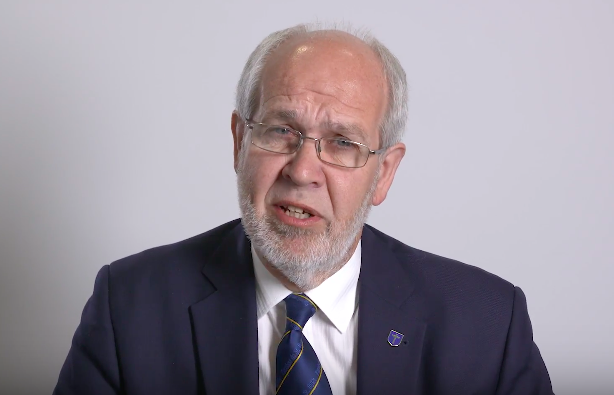
A death can be registered as being probably caused by covid-19 without a positive test result, it has emerged during the inquest of an elderly care home resident.
An inquest into the death of an islander in their 70s held yesterday heard that, despite returning a ‘negative’ result for the virus whilst alive, and then again after death, the virus was listed as the probable primary cause of death on the medical certification.
It was subsequently listed as a factor in the ruling of the Coroner.
The hearing, held to ascertain the medical cause of death, was presided over by Coroner Advocate Mark Harris.
Pictured: Inquests are held at Morier House, but this hearing was conducted on the telephone.
The inquest heard that after a fall, the health of the islander - who Express has chosen not to identify - deteriorated, and they ultimately developed respiratory symptoms.
A covid-19 chest infection was listed as “probable” cause on the death certificate, with immobility due to the fall and another health condition entered as relevant factors.
This was echoed by the finding of Advocate Harris at yesterday’s inquest.
However, a covid-19 test administered while the individual was still alive returned a ‘negative’ result, as did the swab taken a few days after death.
As part of the coronial investigation into the death, the Coroner approached Deputy Medical Officer of Health Dr Ivan Muscat to summarise the accuracy of tests both before and after death.
In his reply, he indicated that PCR tests – which show whether someone currently has the virus – are about 80% accurate if administered through the nose and 70% accurate if conducted via the mouth. The specialist said this varies depending on “timing and technique” of the sample being taken.
He explained that, whilst there is little information available about the accuracy of PCR testing after death, he said that if the test is carried out a few days after death it should be equally, if not more, sensitive as patients don’t recoil from the discomfort of the swab.
No post-mortem examination was carried out on the islander.
This comes after more details of how covid deaths in Jersey are recorded emerged in the response to a written question from Deputy Kirsten Morel.

Pictured: Health Minister Deputy Richard Renouf.
In his answer, the Minister for Health Deputy Richard Renouf stated: “All 29 deaths (at time of writing) which have been registered in Jersey with a covid-19 related cause of death were certified with other causes of death in addition to covid-19.
“Deaths are certified and registered to include all primary and secondary causes of death that contributed to the death. Therefore, multiple causes of death can be and are certified.”
The Minister went on to explain the process for recording deaths locally. Deputy Renouf indicated that deaths in Jersey are first certified by a medical practitioner and this is then scrutinised and verified by the Superintendent Registrar and, if necessary, the Viscount.
“Medical practitioners complete a statutory document (Medical Certificate of the Fact and Cause of Death – MCFCD) which includes the causes of death and sign a legal declaration that they have certified the death to the best of their knowledge and belief.”
After the cause of death has been scrutinised, “the death is registered by the Superintendent Registrar and the causes of death are placed on public record in the island’s death registers.”
He also indicated that the medical certificate has four sections as follows:
The Health Minister confirmed in answer to another question from Deputy Morel: “No post-mortem examination was performed on patients whose covid-19 infection was established during life (either by virology nasopharyngeal swab tests or clinical symptoms/imaging).”
Comments
Comments on this story express the views of the commentator only, not Bailiwick Publishing. We are unable to guarantee the accuracy of any of those comments.